Worry and Anxiety

Please Note: The contents of this page have been taken from 'Promoting Emotional Resilience' which was developed and edited by the West Sussex CAMHS and School Attendance Project.
What is worry?
Worrying is something that all of us do, every day – children, young people and adults. It is a normal part of life. Worry tends to be a whole lot of thoughts that come one after another, about events in the future or in the past. Quite often worry thoughts start with things like “if only I had…” or “I must remember to…” or “what if…” an example might be the thought “What if I have left the front door unlocked? A burglar might break in! then all my things might be stolen… and then I’d have to go to the police… it would be terrible!...”
Sometimes worrying can help us, by making us do things like checking that we have locked the front door. But sometimes worrying can become a real problem. If you answer “yes” to the following questions, then worrying might be a problem for you. D
- Do you spend a lot of your time worrying?
- Does worrying get you really upset and anxious?
- Does worrying stop you getting a good sleep at night?
- Does worrying stop you enjoying yourself and getting on with things during the day, at school or at work?
- Do you feel that your worrying is “out of control” or that once you start you just can’t stop?
- Do you feel worrying has affected your health (for example given you stomach aches, headaches, or diarrhoea)?
‘What It Is’ and ‘How to Help Beat It’
What too much worrying does Worrying about things can make you anxious. Anxiety is easy to notice if you are on the look-out for it, although many people suffer from anxiety without realizing what it is. When you are anxious you may notice things like:-
• Heart rate speeding up, sweaty skin or going pale
• Feeling upset, on edge, angry, or irritable
• Feeling that something terrible is about to happen
• Throat or mouth dry • Muscle aches or headaches
• Feeling tired, having little energy
Poor digestion – stomach aches, bowel problems
Anxiety can make it more difficult to concentrate on work, to remember things, to get on with enjoying life. If you have a physical health condition or illness, it can also make this more difficult to cope with and even directly affect your health. The more anxious you get, the more you worry and the more you worry, the more anxious you become! It can be a vicious circle.
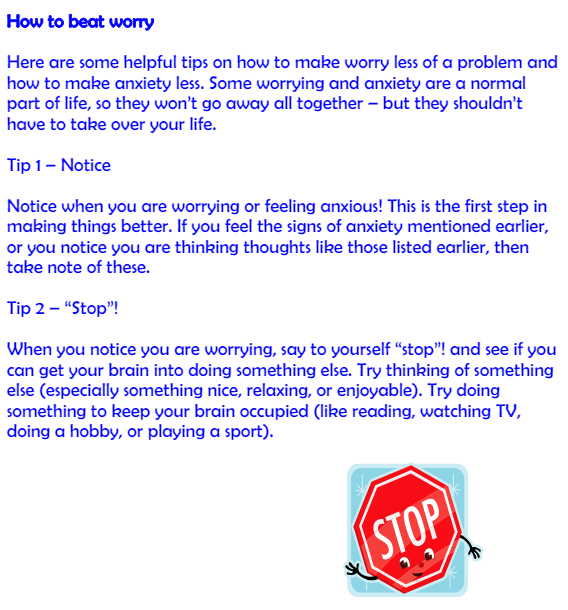
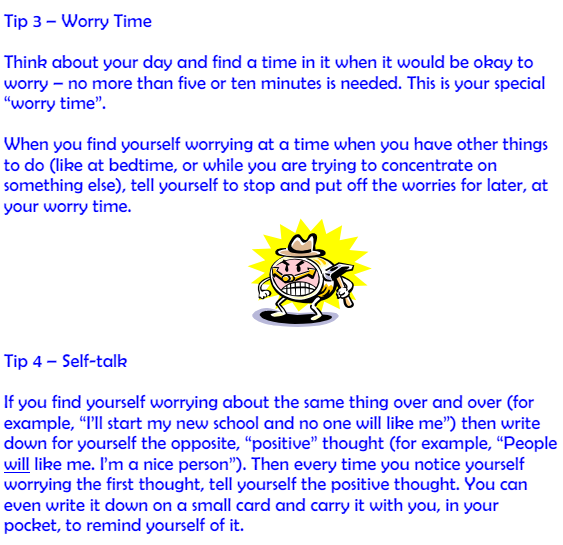
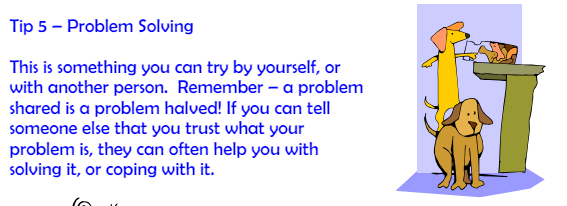
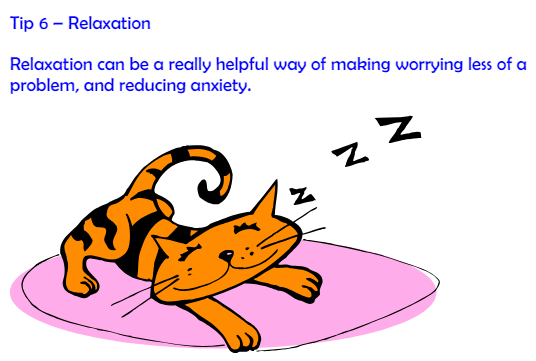
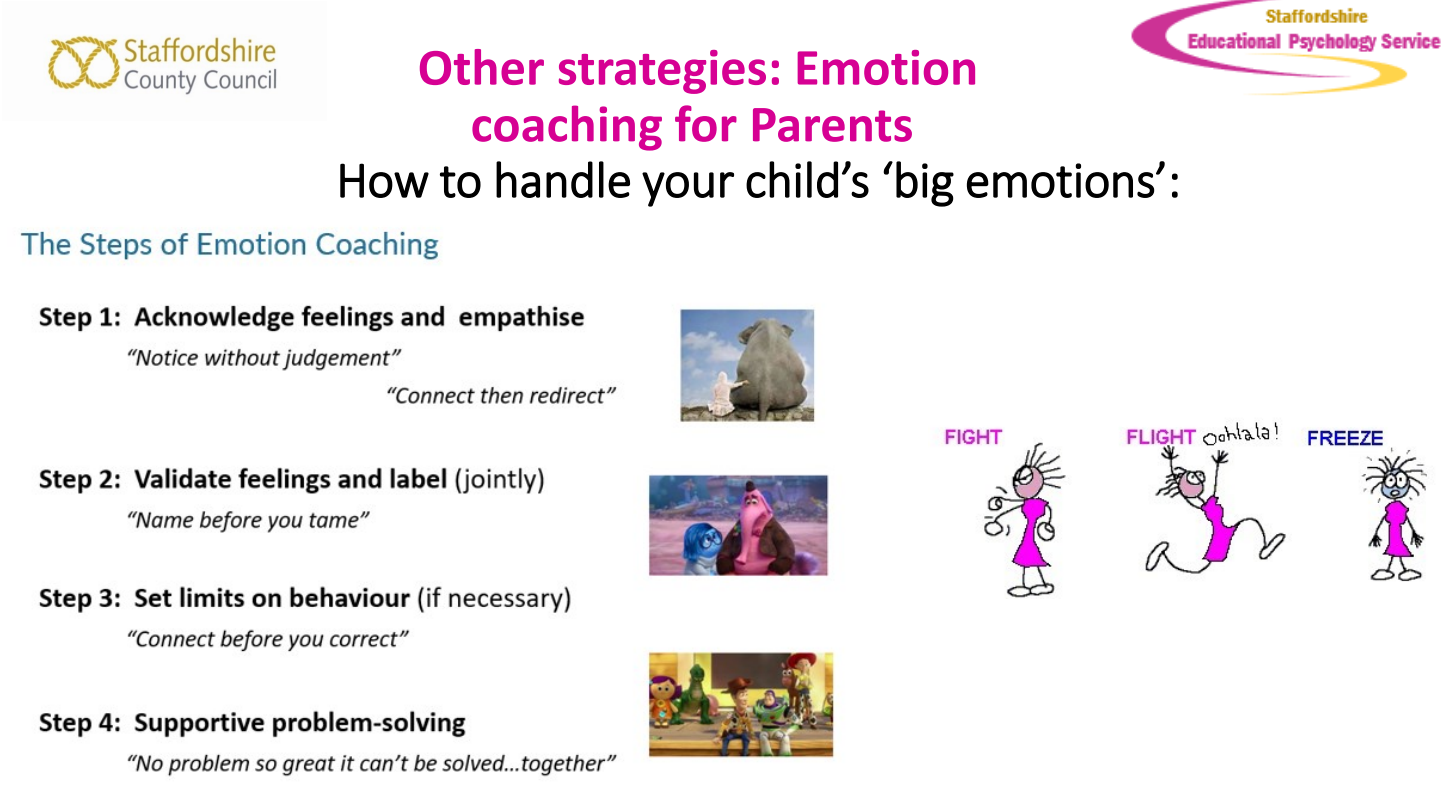
Below are some of the resources we have used with pupils in the past:



Helping Kids When They Worry (for Parents) | Nemours KidsHealth
